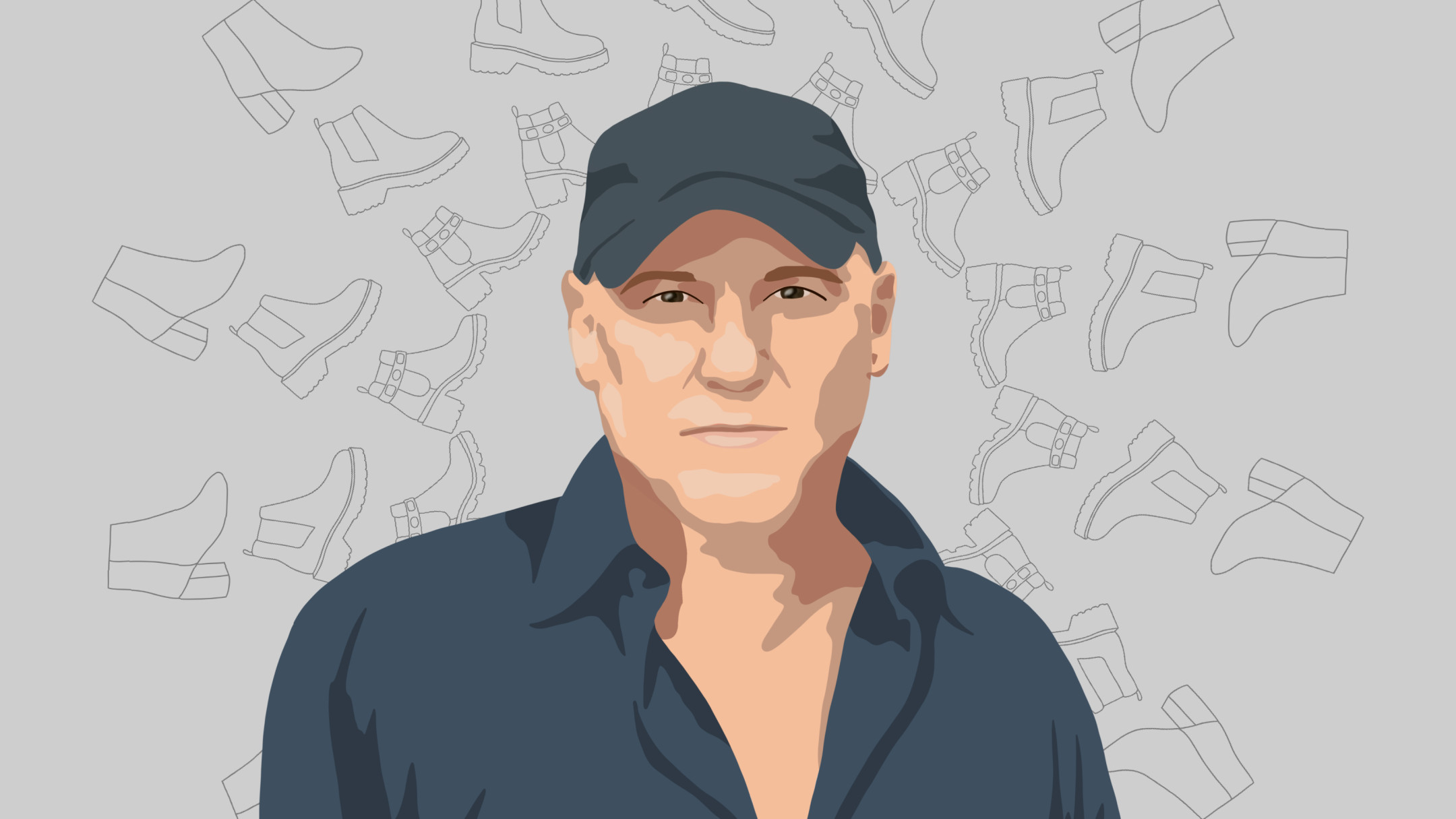There may exist a compulsion, when you are the face of a billion-dollar public company, to grow reserved—to speak in careful, measured statements so as to never put the business you represent at risk.
Steve Madden does not suffer from this affliction. There is simply no one quite like the bombastic footwear mogul, whose name adorns a few hundred shoe stores across the globe, and whose infamy precedes him. For as much as the world knows about Madden’s landmark contributions over 30 years in fashion, it knows just as well about the former CEO’s perils—his drug use, his financial crimes, and his comeback bid in 2005 to make it all right.
From his home in Manhattan, Madden discusses why there will never be a replacement for retail stores, what he thinks of “The Wolf of Wall Street,” the famous Leonardo DiCaprio movie that features the story that led to his downfall, and his return from addiction and 31 months behind bars. “First of all, getting out of prison—it's the greatest feeling,” he says. “For the first month, you're floating in the air."
(This interview has been edited and condensed for clarity.)
Steve Madden has more than 220 stores worldwide, and most of them are back open now—at least in some capacity. Stores right now are obviously giving companies fits in some ways because they cost quite a bit of money to run, and for a little while longer still they're simply not pulling near the volume they used to. What does Steve Madden need from its stores right now to weather this storm?
Madden: It's a very tough time, but there's no replacement for a great store where you put your merchandise in and people come in and touch and feel it. Unfortunately, less people are in the malls, and there's capacity requirements. But there's nothing like a store. Nothing. I can't wait for us to be back.
There's a lot of slagging stores off these days—it's clicks, not bricks. And I don't agree. We have a great internet business, which we're partners with [Shopify Plus], but there's nothing like a great store where people can smell it and touch it and feel it. I'll never get tired of that.
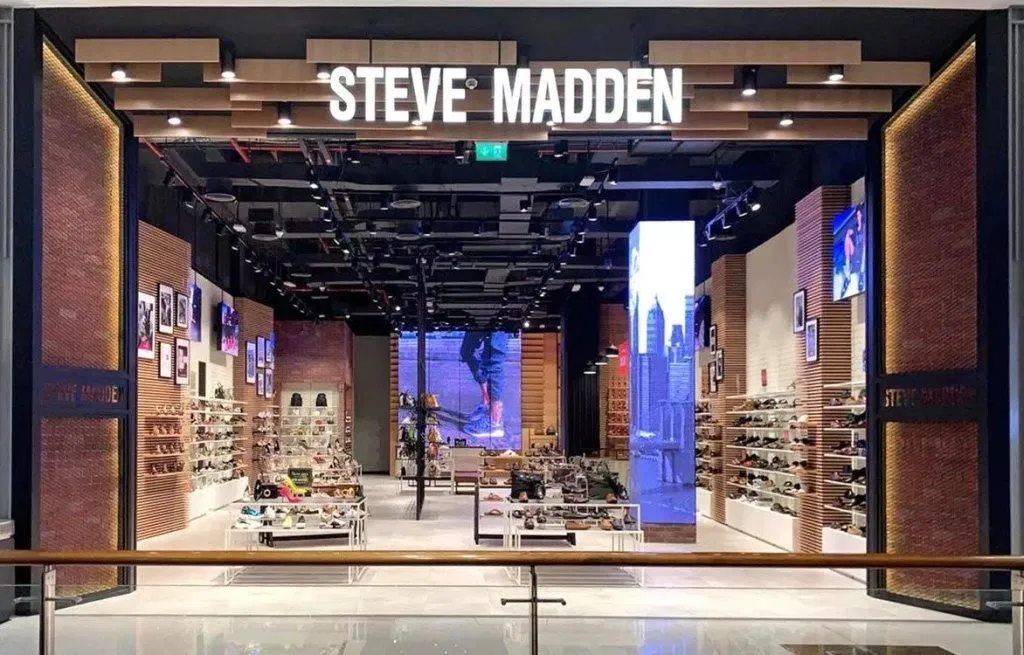
Has anything over 2020 made you believe that Steve Madden may rethink the ways in which it operates stores going forward?
Madden: Nothing has really changed. I mean, COVID has just accelerated the digital explosion. It's pushed it 4x [faster], but there was nothing that we didn't think of before. Everything's on the phone and everything's on the internet, so we knew about this. But we always think about how we can be different in our stores.
Thirty years ago is when you founded this company, in 1990, with $1,100 and a car trunk full of shoes. Aside from a 31-month interlude you took from the business, which we'll get into a little later, where does 2020 rank among the most challenging times for the company when stacked up against three decades of running this thing?
Madden: It's the most challenging year, for sure. When we started, the sky was the limit. I came out charging. It was a different time. It was fun opening new accounts and making more shoes, and every week was bigger than the week before, but now we're dealing with this pandemic and it's worldwide. There's no place to hide from it.
In “Maddman,” the Netflix documentary about you, one of the first lines is this voiceover from a TV host calling you an “unconventional CEO”—that clip is from back at the time when you were CEO. And on the jacket to your new book is a blurb from Kenneth Cole, the American designer and contemporary of yours, who says you're "an unlikely entrepreneur." What was the industry response to you, especially from those in high fashion and footwear, when you first arrived on the scene 30 years ago?
Madden: I was always sort of an enfant terrible. I'm too old to be an enfant terrible right now, but I was a little bit of a rebel, and did things differently and dressed differently and thought differently. I suppose I wasn't thought much of in the beginning.
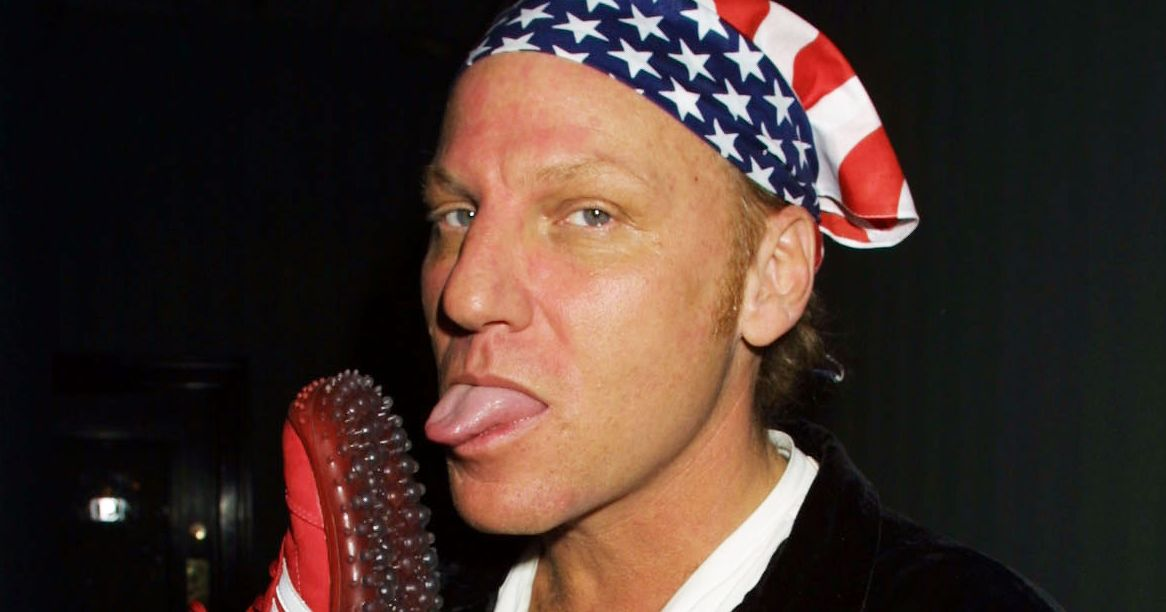
You have been incredibly candid and forthcoming about how your 20s were spent working hard during days and then using drugs hard during nights. You get clean, however, in your early 30s, which is when you found your own company. But you said that a new addiction gets its hooks into you then: an addiction to money ...
Madden: There [are] a lot of addictions. There's food addiction. There's sex addiction. There's workaholism. There's gambling. It's anything to get out of yourself so you don't have to feel. I experienced all of those things, but I first had to surrender my drinking and drugging. I surrendered that, and then I could deal with those other things.
So I was talking about workaholism, which is the same thing as this quest for money. And it's not as easy to see. It’s sort of like the pain people applaud, if you know what I mean.
Money is great. I mean, you certainly can live a very comfortable life, but the problem with that is it's never enough. There could be a point where $50,000 is all the money in the world. And then when you get $50,000, it's $400,000. And then $400,000 is all the money that you could ever imagine. And when you get that, you don't think you have enough.
You've said that you're a naturally negative person, always pessimistic. And I heard you once say that you used to think you were going to go out of business every single day. How did that kind of unrelenting sense of worry actually drive much of what Steve Madden became?
Madden: Well, you're not complacent. And you respond to everything as if it was an emergency. I always had the sense that the sky was falling and I was made fun of [for it]. I was very worried.
Without getting into the weeds too much, there are certain principles in the company that exist today that existed when I started, and one was inventory. We were in an inventory-intensive business, but I was always very focused on getting rid of it. I remember when I started, and I would have eight extra cases [of shoes] that I didn't ship out. I would not be able to sleep at night.
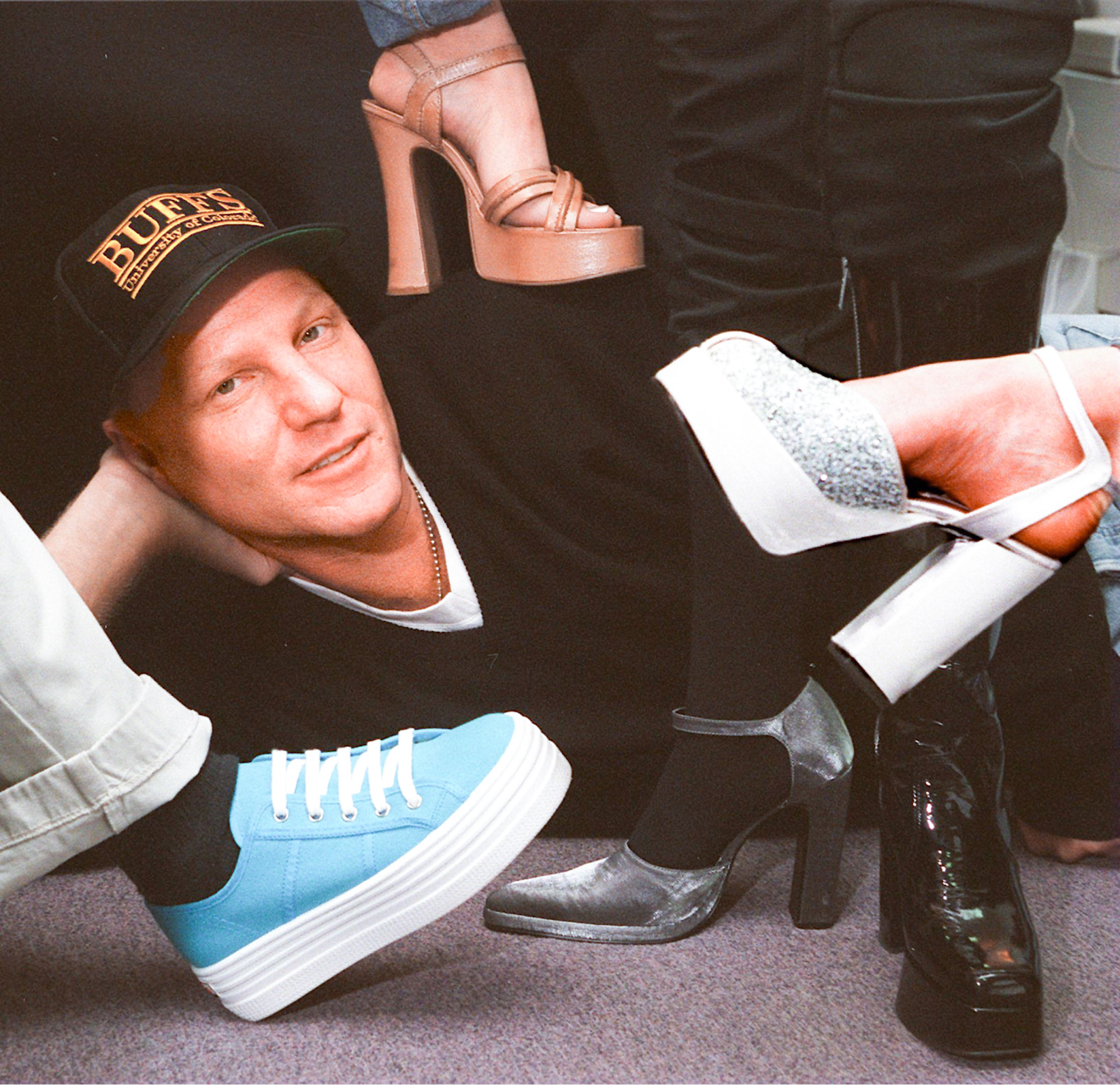
If I ask you to think 30 years back, what would you say were some of the smartest things you did in the early days of Steve Madden?
Madden: One of the things was in my stores. When I opened my stores, [employees] were only allowed to wear Steve Madden. And that was a little bit like, “Why can't I wear my Converse?” [But] it was a hard-and-fast rule. I'm glad I did that. And I still have that rule. It's about the message that it sends. It's not so much [making] the woman or man wear my shoe. It's more, “Well, you're not even wearing your own shoes. Why would I buy shoes from you?”
What about the flip side of that? What kind of mistakes did you make back then?
Madden: Getting involved with the Stratton [Oakmont] guys was certainly a mistake. Initially, [it] started by raising money for my company, but taking that kind of shortcut was something I wish I never did.
So, how often do people bring up “The Wolf of Wall Street” to you?
Madden: Pretty much every day of my life (Laughs). It was a great movie.
Indeed, of all the places your story has been told, “The Wolf of Wall Street” has become a standard reference for people. You get involved in 1993 with the investment firm Stratton Oakmont, which was famous for being a pump-and-dump company. By the description in your book, it made money by shoving the stock of lousy companies upon unsuspecting clients.
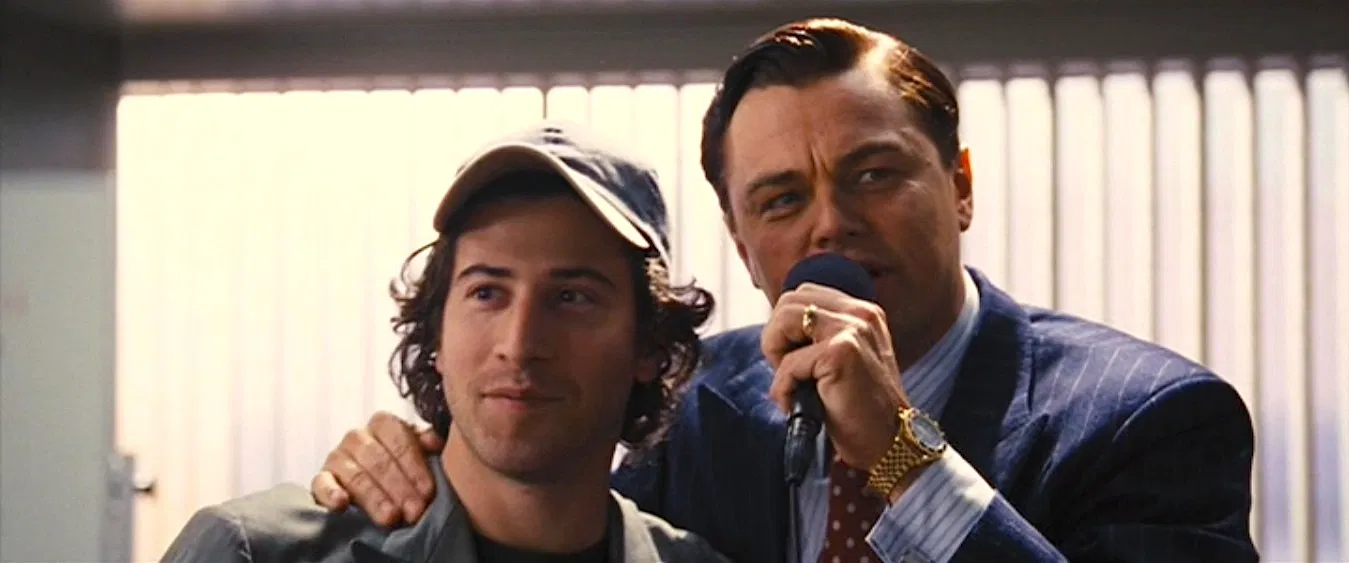
But the point I think that gets lost in the retelling of this story is that your company—a young Steve Madden, which then had just opened its first store and wasn't typically the type of business that would be yet filing for an initial public offering (IPO)—was theoretically to be one of these penny-stock companies that the world would never hear from again.
Madden: Yes. (Laughs) I don't even know how to respond. You're 100% right. [Stratton Oakmont] brought companies like mine public, and they were small companies, but I knew that I had something. I wasn't sure. I couldn't swear to you that I was going to be a billion-dollar company, but I knew I had something special. And I think it was the only company, fast forward to 25 years later, that has made it.
The irony in hindsight is that, thanks to Stratton Oakmont, the IPO was a huge success. The Steve Madden share price takes off, and before it comes crashing down for you personally sometime later, for the first time in your life you have real wealth and real capital. At that time, what were the right things you were doing with that money to grow the business?
Madden: I guess it was just investing in people. I would hire a little more people than the business could afford, but I knew that I was building into it. So that was where the money went. I remember [when] I had maybe nine employees thinking, “How the hell am I going to afford all these people?” And it was a bit of a three-ring circus for a while, but it worked out [and] expanded into all these things.
In 2002, at the very height of what Steve Madden the business was becoming, you are convicted of the financial crimes that stemmed from your relationship with Stratton Oakmont, and you begin a sentence of which you eventually serve 31 months in prison. When you go away, you have to step down as CEO while you are locked up. What was the extent of influence or involvement you had on the business while you served your time?
Madden: I had very little, other than [to] be a cheerleader for the guys when they came to visit me—pat them on the back. I mean, they would ask me some questions, but to be honest I really wasn't much help. I was busy trying to survive in prison. And I'm sort of a tactile executive. I need to see it and touch it. I knew that I had a great team, a capable team, and I knew they would be okay.
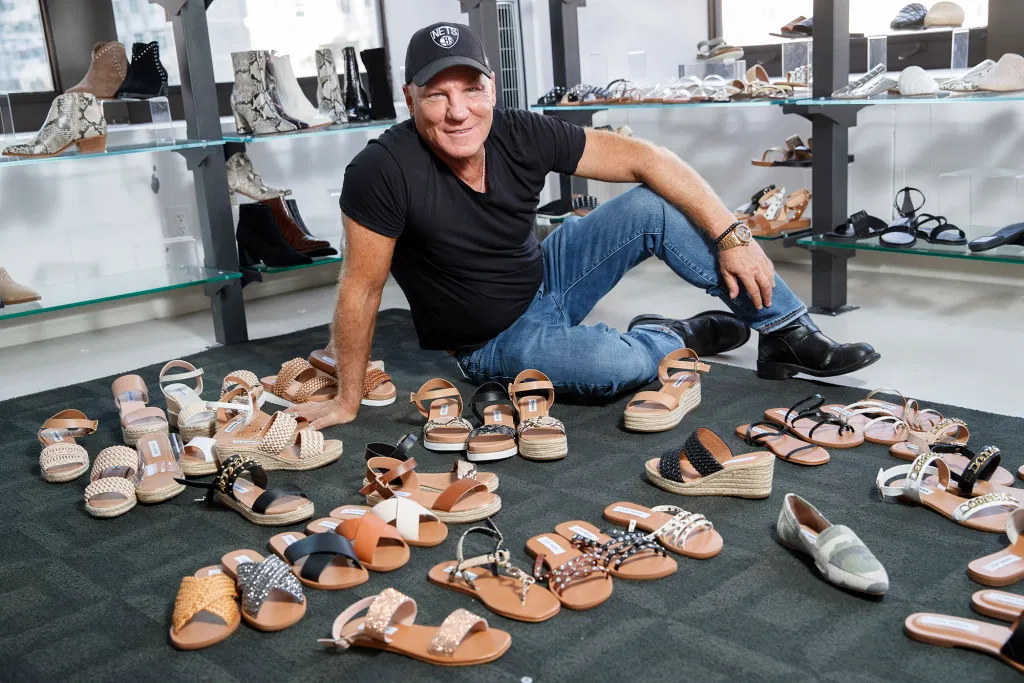
Your release comes in 2005, and immediately you're back at work. You wrote in your book that people in the fashion industry are pretty forgiving, but you knew you had to earn their forgiveness. What was the response to you and to your company when you came back?
Madden: It was fantastic. Everybody was ready for me to join. There was excitement.
In fact, this wasn't the second time for you, like in 1990, when you were this outsider trying to break in again?
Madden: No, it was a little different. But that's good, I never thought about that.
First of all, getting out of prison—it's the greatest feeling. For the first month, you're floating in the air. “Oh my god, a sandwich!” It's unbelievable. So it was a great time. It was quite different from the beginning.
The business then is really killing it. You're up to nearly $500 million in revenue by 2006, which itself is up about $100 million from the year you were released. Because of a deal you had to make with the Securities and Exchange Commission, you are prevented from becoming an officer of your company for a little while.
But you've said that one of your superpowers is to find the right people and get out of the way. And you said, at least for how it pertains to some company founders, "You have to let go if you want to get really big."
Madden: When I could become an officer again, I thought, “No, it's going quite well. I can do what I want, and I'm still Steve Madden.” I worked with wonderful people, and it was the best for the company and for me [to let go]. I think that Bill Gates has done that. He's got the greatest CEO.
For me, I was a good CEO for that time, for that size [before I went to prison]. But as things went on, it was bigger—lots of P&L (profit and loss) statements, lots of legal briefs, and real serious stuff that I had no interest in. I just wanted to make shoes.
One of the big dominoes there falls in 2005. Three years before he would become your CEO, you bring in Ed Rosenfeld, this impossibly young-looking vice president who was handling mergers and acquisitions (M&A) for PJ Solomon.
Madden: I just liked his name. [He] sounded like a Jewish bootlegger from Canada (Laughs). What I loved about Ed Rosenfeld (pictured below, left, with Madden) was he was doing okay as a young, hot shot banker working on M&A deals. He says [to me], "I don't like this. I want to build a business." I say, "Great." I didn't really know him, but he had a great energy about him.
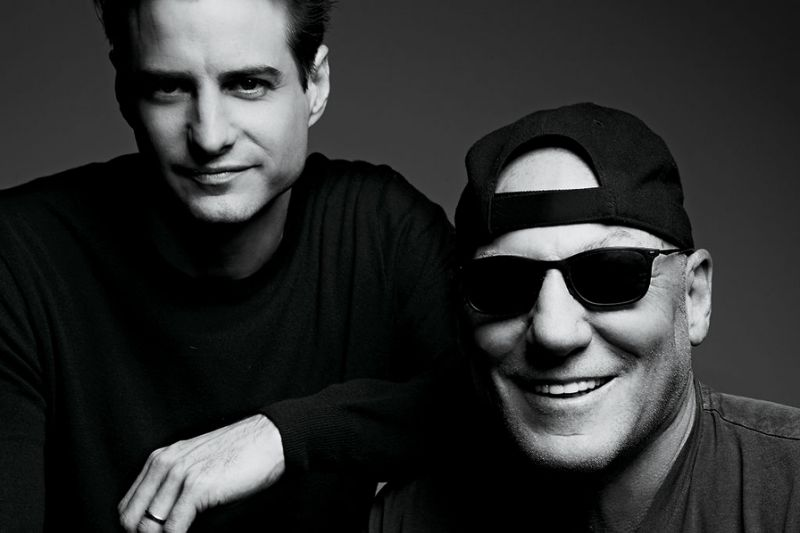
So he started. And he didn't even have a title. He just sat in my office at a little desk, and we just grew together. Three years later, he became the CEO of the company. If you ask people on Wall Street who they respect, bankers and analysts will say Ed Rosenfeld.
In the time after your release from prison, Steve Madden really goes global for the first time, thanks in large part to the efforts of your brother, John. And in doing so, your store count and revenue have shot way up into the stratosphere since. What were the do's and don'ts about international expansion as your company learned them?
Madden: Don'ts would be not to put too much in between you and the customer. What we would do initially is, we would sell shoes to a distributor, who would sell them to someone else, and then the customer would get them. And that model didn't hold up because the customer needed a [distributor] who was buying [the shoes]. [But] it needed to be a good price and it needed to have value. And if you're padding all those people in it, sometimes it doesn't work. So I think that's the don't.
And what were the best things you did in going international?
Madden: When you're dealing with the Southern hemisphere, try to sell as many sandals as you can (Laughs). That was a shocker for me—something so little and common sense. In Mexico, they sell sandals. In Puerto Rico, they sell sandals. “Wait, you don't like my boots?” “No, we don't sell that here. It's hot 12 months a year.” So you have to learn the rhythm of the countries.
You have this dress-down style to you that's almost become a trademark. You're most often in a ball cap and T-shirt. You've joked in the past that you dress a bit like a mechanic. If it isn't clothing or the way you present yourself to the world, what's something that you really like to splurge on?
Madden: I love golf. I am passionate. It's my hobby. It's something that my dad taught me when I was a little boy. I'm not very good at it, unfortunately, but I love to play it. And so I do spend money on that. That's my thing. It's certainly not clothes.
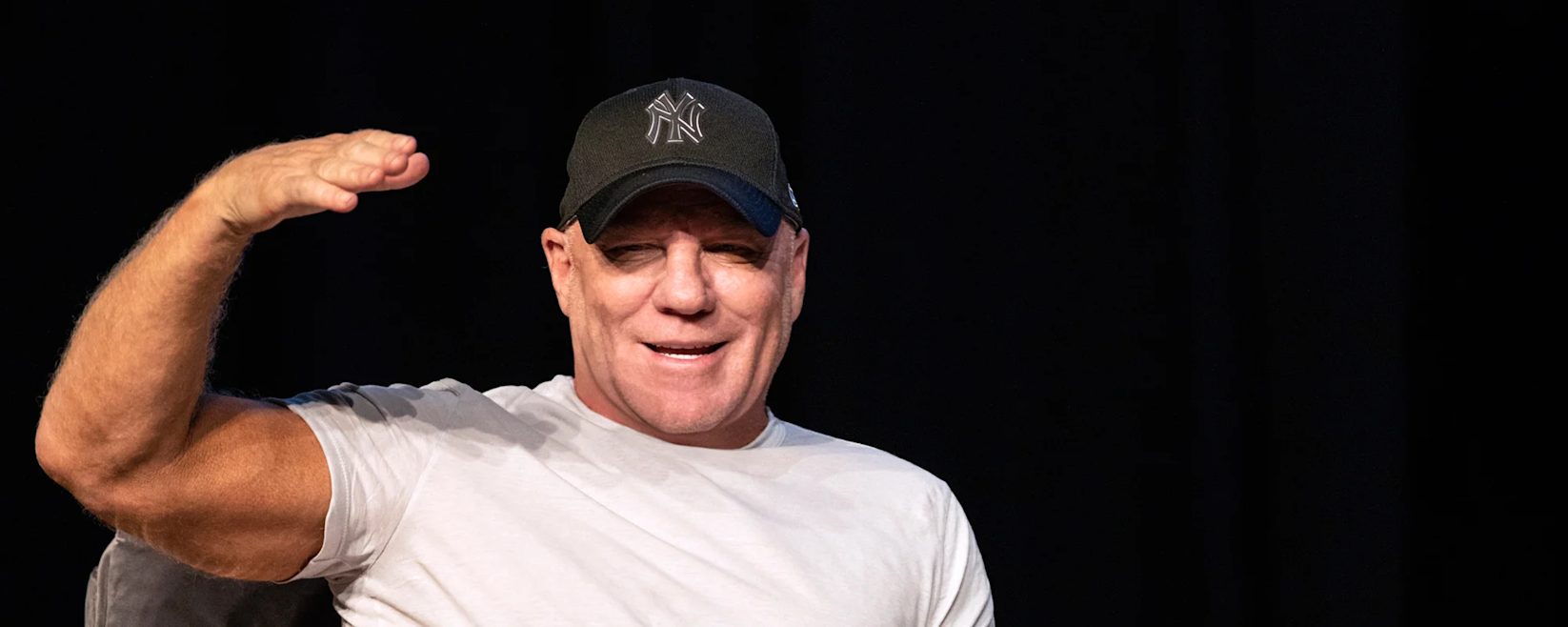
You became a father later in life. How old are your kids now?
Madden: I have two 13-year-olds and a 7-year-old.
Some of the more challenging parts of your life that you've been so open about publicly—addiction and prison—if you haven't already, how do you imagine you might discuss those things with your children?
Madden: Look, we're in the age of Google, right? I mean, you can hit a button and get anything on anyone. So there are no more secrets. So why not turn it around and use it to help people? That's my view of it.
There was a time when you didn't want anybody to know about a divorce or whatever it was. But today, everything's out there. Everything. Every speeding ticket. And it's sometimes terrible, but that's the society we live in. So why not get in front of it?
You say in the final pages of your book that you want to leave behind a profitable company that's a force for good. Are you the type of person that will ever fully retire, or would you like to have a role in Steve Madden the business for as long as you're able?
Madden: So, I'm still somewhat young, and I'm in good shape. I have to say that COVID made me a little dull, but I'm trying to work through it (Laughs).
I don't plan on retiring, no. I like shoes. I like the challenge of making shoes. Some of the other bits in the business I'm not quite fascinated with, so thankfully, we have a company that deals with everything.
[There are] so many things that I couldn't care less about, but I do care about the shoes. I've been so lucky that I can just do that. So no, I don't see myself going off to Happy Acres.
